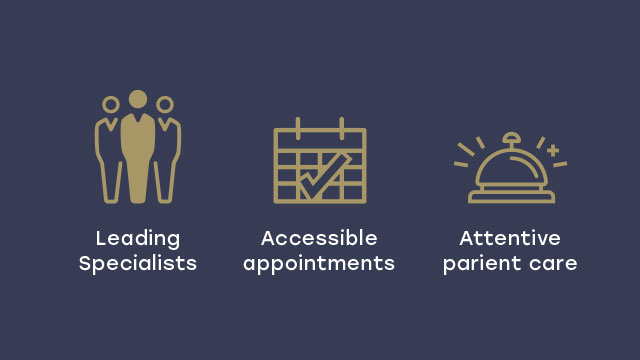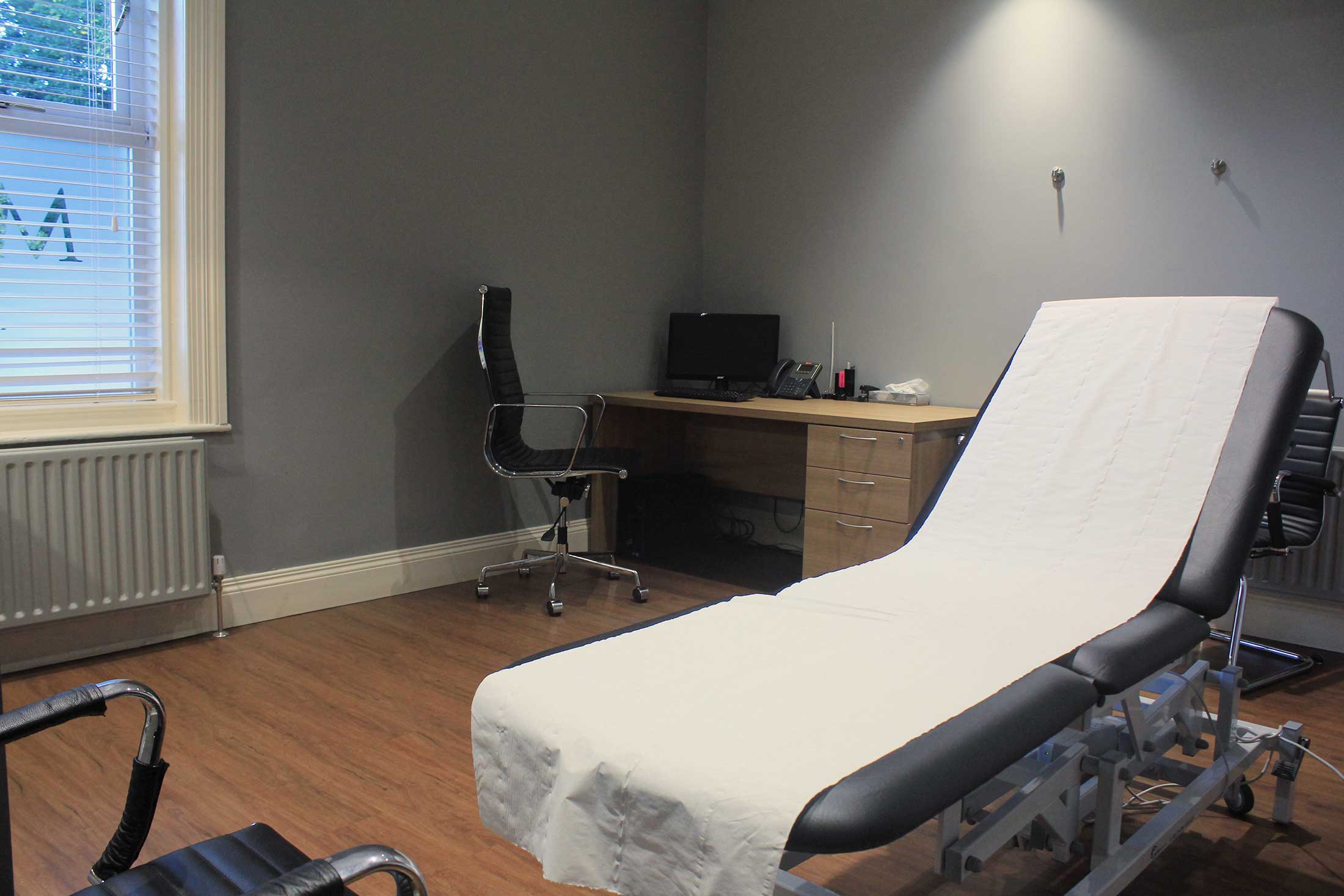Republic of Ireland patients
Ortho NI represents the leading edge of Northern Ireland’s private orthopaedic consultants. All our consultants are approved to offer first class orthopaedic treatment within the HSE Cross Border Directive.
Introduction
Cross Border Directive Information
Initial consultation
Investigations
Surgery
Reducing Risks
Rehabilitation
Costs and Medical Insurance
Do I need a GP referral?
Do you see patients for second opinions?
What should I do in an emergency?
Which physiotherapist should I see?
What follow up will I need?
Cross Border Directive
Patient information
Paying for your treatment
FAQS
To take your first step toward recovery, simply contact us to make an appointment with our expert consultants. We welcome private and self-funded patients and all inquiries are strictly confidential. Ortho NI consultants are recognised by all major insurance companies. We also welcome self-funding patients.
Consultations are performed at our accessible, high quality locations. Assessment and surgery is performed by your chosen specialist surgeon. Find out more about your specific procedure by viewing one of our Specialities pages.
When you visit us for a consultation please bring your GP letter of referral, insurance membership number and your results of any previous investigations. You can book an appointment with your chosen consultant on our Contact page.
All our consultants are approved to provide first class orthopaedic care within the HSE Cross Border Directive.
The Cross Border Directive allows for Irish residents to avail of healthcare in other EU member states that they would be entitled to within the public health system in Ireland, which is not contrary to Irish legislation. The costs must be borne by the individual and he/she then seeks reimbursement for the cost of the healthcare upon return to Ireland.
1) Have you got an appropriate referral? To avail of public health services in Ireland you must be referred to those services by your GP or a hospital consultant you are attending on a public basis.
2) If you decide you wish to access the healthcare in question in another EU/EEA* State you will require an appropriate referral from your GP or treating physician in Ireland. A referral from a GP abroad is also acceptable and a consultant abroad can be considered a referring consultant where a referral from a GP to that consultant is evidenced. The letter should stipulate the healthcare required, general clinical and personal history as appropriate, the health professional abroad you are being referred to and the clinic/hospital/location where that health professional operates from.
3) Ensure the service you are seeking to access abroad is covered by the provisions of the CBD (your consultant will advise you of this).
4) How does this scheme work?: The CBD allows for patients ordinarily resident in Ireland who require and are entitled to public healthcare services to be referred to another EU/EEA* member state for that care and be reimbursed in accordance with the legislation. It will be a matter for the patient or his/her referring doctor to identify the clinician abroad and satisfy him/herself in relation to the qualifications, quality and safety of the services being availed of in the other jurisdiction. Funding will only be reimbursed for healthcare that is publicly funded and available in Ireland and which is not contrary to Irish legislation. Reimbursement will be made in line with published reimbursement rates available from the NCP. Reimbursement will only be made to the patient.
5) What healthcare is available under the scheme?
Acute Hospital Services – Day, Inpatient, Outpatient Care.
Outpatient and Day Case
There is no application process for outpatient or day case care. Once you have a referral from a GP or treating consultant here in Ireland you may proceed with your out patient appointment. A referral from a GP abroad is also acceptable and a consultant abroad can be considered a referring consultant where a referral from a GP to that consultant is evidenced. Following the appointment you would then submit the invoice, receipts, pro-forma invoice, proof of travel etc to the HSE for reimbursement.
Inpatient (involving an overnight stay)
You should seek prior authorisation for all episodes of inpatient care (involving an overnight stay) under the CBD prior to accessing that care.
Prior authorisation application form process: The patient/applicant must submit a fully completed application form accompanied by the appropriate referring letter in sufficient time to allow the HSE assess and make a decision on same. The onus is on the patient to submit a fully completed application form and to provide the necessary information from the referring clinician.
7) When I apply, how long does the decision process take? A decision can be expected between 15 and 20 working days following the receipt of a completed application and any other information/clarification requested.
8) Do you need prior authorisation? If the service you are seeking to avail of in another EU/EEA State involves an overnight or longer stay in hospital then you will need prior authorisation. Prior authorisation can be obtained by contacting the National Contact Point (NCP) at the details below or by emailing crossborderdirective@hse.ie and the staff will provide you with the necessary forms.
9) Before you depart for your healthcare abroad download the pro-forma invoice via the HSE website. It is strongly recommended that you bring this pro-forma invoice with you and ask your treating clinicians abroad to complete it for you. The reason for this is that the pro-forma invoice contains the information the HSE will need to process your claim for reimbursement upon your return. You will also be required to provide the invoice from the foreign provider and proof of payment.
10) When you return to Ireland you should submit the completed pro-forma invoice, the invoice from the service abroad and your receipt to the National Contact Point office at the HSE Cross Border Directive, St Canice’s Hospital, Dublin Road, Kilkenny Tel: 056 778 4547 or 056 778 4546 or 056 778 4556 or via email in PDF format to crossborderdirective@hse.ie .
Having either self-referred or been referred by your GP or physiotherapist, an appointment date will be scheduled to see one of our consultant partners. You should bring with you all relevant previous investigation results.
Following this initial consultation, further investigations such as X-rays or an MRI scan may be required. A review appointment will be organised to discuss your investigation results. Surgery may be necessary; in which case, we will arrange a date that is convenient for you and conduct a pre-operative assessment to ensure your safety for anaesthesia.
After taking a detailed history of your symptoms and an examination, your specialist consultant will often be able to diagnose the problem. However, further investigations are sometimes necessary. All our specialist consultant partners work closely with local musculoskeletal imaging (expert radiologists), holding regular weekly meetings to discuss scans and complex cases. The following paragraph tells you about some of the tests and scans you may need to undergo:
- Blood tests can help distinguish between inflammatory arthritis and osteoarthritis and help rule out infection in painful joint replacements. Some routine blood tests are usually required as part of the pre-operative assessment for large operations.
- X-rays can help assess bone injury and the distribution and severity of arthritis. Special views, including weight bearing or stress views and long leg alignment films, may be necessary in arthritic patients.
- CT scans use radiation like X-rays but can provide useful 3-dimensional assessment of alignment and bone damage.
- MRI scans do not use radiation. They give an assessment of bone problems around the joints, but are most effective at showing injuries to the ligaments or cartilage, within the hip – labrum, within the knee – meniscus.
- Ultrasound scans, when performed by experienced musculoskeletal radiologists, can provide an excellent dynamic assessment of soft tissue around the joint, as well as being used to provide accurate guidance for targeted injections of either steroids or platelet-rich plasma (PRP).
All surgery carries some risk, although for most procedures the risks are low. Your surgeon will discuss in detail the risks specific to any procedure that is planned, but here is some general advice to help reduce the likelihood of complications occurring.
- If you have any pre-existing medical problems that are not under control, be sure to have these checked by your GP well before the date for surgery.
- If necessary before the procedure, you will have a ‘pre-operative assessment’ to judge your fitness for surgery. Problems picked up at this stage may need to be sorted out beforehand and surgery may need to be delayed.
- Swabs looking for MRSA are done before any major joint replacement operation and if you test positive this will be treated before surgery.
- Elective joint surgery cannot proceed if you have any active source of infection e.g. you must finish treatment for any chest, urine or dental infection before proceeding. If you have any open wounds, ulcers, cellulitis, thrombophlebitis or severe sunburn affecting the legs, surgery will be postponed.
- Diabetics and patients on immunosuppressive drugs have increased infection risk and should ensure these conditions are optimised and stable prior to surgery.
- If you are due to have a joint replacement, do not have a steroid injection in the knee in the preceding 2-3 months.
- Ensure your muscles are as strong as possible before surgery to aid more rapid post-operative rehabilitation. Strong muscles also help to reduce stiffness and the risk of clots.
- We operate in Ultra-clean Air (UCA) laminar flow theatres to reduce infection rates. It is important that every person who comes into contact with you on the ward (including staff and family/visitors) uses the alcohol hand gel provided.
- Wound dressings are disturbed as little as possible in the first 5 days to allow the wounds to ‘seal’.
- Post-operatively, you must keep the wounds dry until they are sealed and the stitches or clips have been removed or dissolve. The nurses can advise you on how to achieve this whilst still maintaining general personal hygiene.
- Following surgery, you should immediately contact the hospital or surgeon if there is any concern about ongoing bleeding or oozing from the wound, infection or severe swelling.
- The risk of clots is highest in patients with specific risk factors, which include: previous clots, family history of clots, obesity, age, prolonged immobility, and cancer. Your individual risk will be assessed and your type of surgery taken into account. The key to reducing clots is early mobilisation, but you may also require: stockings, calf compression devices, and tablets or injections to thin the blood. This medication will usually start once we are happy there is no severe bleeding risk, and may continue after discharge.
- Long-haul air travel carries a risk of clots. You should avoid long-haul flights for four weeks before and after major joint replacement. If this is not possible, additional scans for clots may be required before surgery or before flying.
- Good nutrition helps with recovery after surgery as it aids the healing of your wounds and enables you to cope with energetic physiotherapy. If you have any nutritional problems, these should be addressed prior to major surgery. If you have any unusual dietary requirements, let the hospital know before you are admitted.
- There is good evidence that outcome is better and the risks are lower in hospitals and with surgeons performing high volumes of joint replacement surgery.
- We follow the WHO Safer Patient Initiative guidelines, which involve a safety briefing at the start of each operating list and each case. This ensures the whole team have checked the side of the operation, whether the patient has any medical problems, and the availability of all the kit needed to carry out the operation.
If you already attend a Physiotherapist we are happy for that Physio to complete your rehabilitation course. Most physiotherapists are recognised by all the major insurers. You will need to check your policy to see whether or not physiotherapy is included. The number and frequency of sessions required will be individually tailored to, and guided by your progress. Physiotherapy is often very helpful preceding (prehabilitation) as well as following an operation (rehabilitation).
Costs and Medical Insurance
All our consultant partners are recognised by the major healthcare insurance companies (Beneden, H3, BUPA, BUPA International, AXA PPP, WPA, Norwich Union Aviva, Standard Life, Vitality, Simply Health, Cigna etc.)
As consultant surgeons we are able to provide diagnostic services in addition to day case and inpatient surgical treatment.
Your insurance policy may have an excess, and on occasions there may also be a shortfall in the coverage provided by your insurance company to cover the incurred costs. In these situations, an outstanding payment will be required.
Below is a fee explanation note produced by FIPO (the federation of independent practitioner organisations) outlining the important principles governing the provision of medical care under private medical insurance.
Click here to download a PDF of the fee explanation note.
Self-funding patients
Increasingly patients without private medical insurance are opting to fund their own medical treatment in the private sector.
Following an initial consultation and subsequent investigations, at a review consultation, a diagnosis will be made and a management plan formulated. Based on this plan a fixed price cost for any surgical treatment may be provided. In general, private hospitals will require payment in full before the treatment is provided.
If you are paying for your own treatment, then a referral is not necessary although in general it is preferred. The majority of insurers will require a GP referral before authorising a consultation, investigations or any treatment. Many of my referrals come from physiotherapists and some insurers will now accept that mode of referral.
We increasingly see patients for this reason. We request that you notify our Practice Manager if you are seeking a second opinion so that an appropriate time slot can be organised.
We aim to provide as comprehensive a service as possible. We are unable to provide 24/7 cover. However if you have any urgent queries you should initially contact the hospital ward in which you had your surgery. If the treating surgeon is unavailable then one of the partners is usually able to provide a review.
On some occasions you may be advised to attend your local accident and emergency department.
If you already attend a Physiotherapist we are happy for that Physio to complete your rehabilitation course. Most physiotherapists are recognised by all the major insurers. You will need to check your policy to see whether or not physiotherapy is included. The number and frequency of sessions required will be individually tailored to, and guided by your progress. Physiotherapy is often very helpful preceding (prehabilitation) as well as following an operation (rehabilitation).
The number of further consultations you need will depend on the operation you have had and how closely we need to monitor your progress. In general we aim to continue to see you until you have fully recovered from any procedure.
First class surgery and legendary hospitality.
Ortho NI provide hassle-free, effective healthcare from Northern Ireland’s leading orthopadedic consultants. Our growing roster of specialists specialise in Hip, Knee and other forms of orthopaedic treatment.
Practicing from leading clinical facilities throughout Northern Ireland, we provide a first class level of care to patients requiring private medical consultation and treatment.
View our Referral process
Exceptional care and attentive recovery.
Our international patients benefit from the friendly hospitality of a Northern Ireland visit. Ortho NI specialists provide the highest standards of orthopaedic practice. Our specialist practitioners offer a complete service from consultation to investigation, diagnosis to surgery, from physio to recovery.
For more information on visiting Northern Ireland, see Discover Northern Ireland.
More info about visiting Northern Ireland for orthopaedic treatment
First class patient service — from consultation to aftercare

Consult
Meet our expert Orthopaedic consultants at a time that suits you, at one of our convenient Northern Ireland locations.

Investigate
Our consultants diagnose and make best practice recommendations on your course of treatment.

Treat
Surgery or treatment is scheduled for an appropriate time, at one of our high spec private clinic facilities.

Recuperate
our recovery is closely monitored and aided by our specialist consultants and our attentive medical staff.
All of our practitioners are approved by leading insurance companies

Cookie Policy
This site uses cookies in the interest of providing the best user experience. If you continue without changing your settings, it will be assumed that you are happy to receive all cookies from the andyhenry.co.uk site. If you do not wish to receive cookies from this site, you are free to change your cookie settings at any time.



